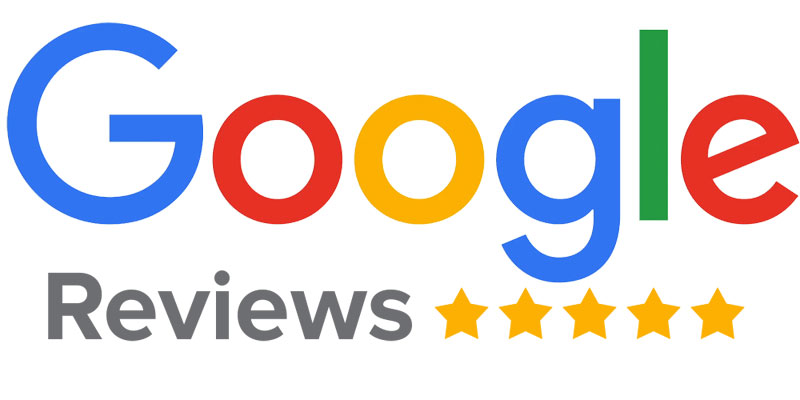Why Online Reviews Matter for Dental Practices

Besides providing excellent care and treatment, a dental practice needs to establish a bond of trust with its patients to attract new patients and retain existing ones. One effective way to build this trust is through positive dental reviews, which offer firsthand insights into patient experiences. While word of mouth remains a factor in building your online reputation, in the digital age, online reviews of your dental practice can reach out to far more potential patients and are therefore crucial in the trust-building process.
The first port of call for many people looking for a dentist is often online review sites, which will give your prospective patients their first impression of you and your dental practice, and can also boost visibility in search engines.
People regard online reviews as trustworthy because they reflect real patient experiences, offering insights into the quality of care and service provided. Research suggests that eight in ten people trust online reviews as much as personal recommendations, and that positive reviews significantly enhance a business's online reputation, making more than 70 per cent of consumers trust a local business more.
Reviews are seen as real and unbiased – what your patients say about you is more important than what you say about yourself. The influence of reviews means they can have a bigger impact than paid advertising in boosting your leverage in localised search engine optimization (SEO).
Online reviews can be the most effective and least costly SEO strategy that you can implement, and can be more productive in attracting new patients to your dental practice than conventional marketing.
How to Get Online Reviews of Your Practice
An outstanding dental service alone is not enough to get a host of five-star ratings from patients. You have to encourage all your patients to post reviews. If you fail to do this, the only reviews you’ll get are likely to be from disgruntled patients with an ax to grind.
Make it easy for patients to post a dental review by guiding them to reputable platforms like Google, Yelp, and Facebook, and Healthgrades. Don’t forget to tell them that you’d appreciate their feedback on the testimonials page of your own website (Avoid services such as Lighthouse 360, Revenue Well, Demand Force, etc. that have their own proprietary review platform as these reviews are worth much less to your practice than a Google, Facebook, or Yelp review).
Most patients will post a review if asked. Research has found that nearly 70 per cent of consumers left a review after being requested to do so.
Encourage your staff to routinely solicit patients for reviews of the practice, particularly at the checking-out process, to build a strong online presence that appeals to new patients and put up signs in the reception and waiting areas. If your practice uses an after-appointment follow-up message service, be sure to ask for their feedback.
The most important thing to remember when asking for reviews is to make it as easy to leave a review as possible! Our software and services can be of great service here.
Why You Need to Keep Reviews Coming
It’s important to keep dental reviews fresh because potential patients put more faith in recent postings. Research by UK-based BrightLocal, revealed that more than 70 per cent of consumers disregard reviews more than 90 days old. The
BrightLocal 2017 consumer review survey also found that on average people read seven reviews before trusting a business and that almost half of respondents needed at least a four-star rating before choosing to do business.
New reviews also help to improve Google rankings. Once you get five Google reviews, you’ll see the star icons on your local listing. Research has shown that once you reach 10 Google reviews, your local listing will probably move up in Google. You can expect a further boost once you attain 15 reviews.
Reviews on Google, Yelp, Facebook, and Healthgrades are important for dentists. Google and Yelp are popular with people looking for a new dentist, and a strong presence on these platforms will be rewarded with a prominent search engine ranking.
Although prospective patients don’t generally look for a dentist on Facebook, a Facebook review could act as an indirect referral when people “like” your practice.
Other sites that can help to boost your dental office ranking in search results include Angie’s List, RateMDs and Healthgrades.
Diversifying your reviews across multiple sites will help your practice to increase visibility while staying relevant.
How to Manage Your Online Reputation Management
Unlocking your page and filling out your profile on review sites enables you to better manage your online reputation. This proactive approach is a key component of effective online reputation management, allowing you to utilize highly-ranked platforms to promote your dental business and monitor and respond to reviews
Claiming and completing your profile can be time consuming but it’s worth the effort. Begin by focusing on the most important sites – Yelp, Google and Facebook – and then move on to secondary platforms.
No matter how good your practice is, you can’t please all the people all of the time, as Abraham Lincoln once said. The occasional negative review is unavoidable but claiming your business profile on online review sites gives you more control over how your practice is perceived in the digital world.
Having claimed your profile, you can typically:
- Post photos of your practice and, with permission, pictures of happy patients.
- Add videos so prospective patients get a better feel for what you have to offer.
- Include office hours and other information that’s helpful to potential patients.
- Ensure your practice address, website and phone numbers are correct
- List your services and any specialties.
This can be a daunting task and your practice may be well suited to utilize the expertise and tools of a dental marketing company that can take this off of your plate.
Read More: Why You Should Care About Your Website's SEO
Draw Up an Online Review Strategy
As a dentist and business owner, implementing a comprehensive online reputation management strategy is essential to take ownership of your online presence effectively. An online dental review strategy aimed at bringing more patients through your practice doors might look something like this:
- Make sure your practice is worth talking about!
- Encourage patients to write reviews – but don’t get pushy.
- Point them towards sites that encourage them to become reviewers. (Google is the most important, but Yelp, Facebook, and Healthgrades are also great sites)
- Make it easy for patients to post reviews on your own website.
- Follow up appointments with a request for feedback.
- Thank patients who post positive reviews.
Turning a Negative Review into a Positive Experience
Try not to get too upset about any negative dental reviews, which, as we’ve already seen, are inevitable, and could simply be a result of someone venting their frustrations at having a bad day in general. If you believe a negative reviewer has a valid point, look at it as an opportunity to improve your practice in that specific area, which will ultimately enhance your reputation. This situation is known the service recovery paradox (SRP).
Online reviews may be the one aspect of your practice where you can truly distinguish yourself from your competitors. According to a Harvard Business School study, a one-star increase in a Yelp rating translates into an increase in revenue of five to nine per cent. So, you can’t afford to let any fears about bad reviews prevent you from embracing the marketing power of an effective online review strategy that can enlarge your client base.
Keep on Keepin on!
Building your online reputation through reviews is a long-term process. I hope that this post has helped you see the need to take an active roll in developing your online presence. Remember that “the journey of a thousand miles begins with a single step.” That first step may be to give one of our experts to see how our software and services could benefit your practice. Regardless, good luck and keep on keepin on!



Please login to publish a comment.
Comments (0)